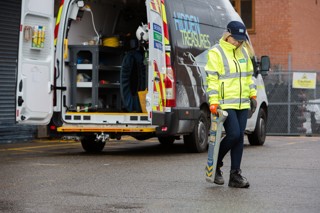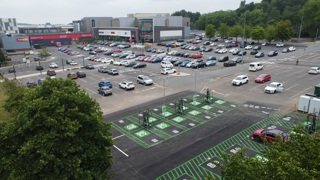Sales of internal combustion engine (ICE) petrol and diesel cars could be curtailed ahead of the Government’s planned 2030 ban, when it publishes the finer details of its strategy in the spring.
Since announcing it would end the sale of new petrol and diesel cars and vans in 2030, with a five-year grace period for some hybrids, the Government has yet to provide clarity on how it will be achieved.
Speaking at the Westminster Energy, Environment & Transport Forum policy conference for low emission vehicles in December, Katie Black, joint head of the Office for Low Emission Vehicles (OLEV) at the Department for Transport (DfT), indicated that the Government wants to avoid a situation where car makers are “selling the maximum amount of petrol and diesel cars right up to the 2030 milestone”.
She said: “We do see it as a risk, and we will be looking publicly at ways to mitigate that. What you probably want is a gradual phase out, a gradual shift across the fleet. And we’re looking at how a regulatory regime could support that.”
No further details were given as to how sales might be restricted, but a key part of Government strategy will be to promote and encourage private buyers and fleets to opt for electric vehicles (EVs) as soon as they can.
This includes an investment of £1.3 billion to strengthen the UK’s charging infrastructure and to extend the plug-in car grant.
Dylan Setterfield, head of forecast strategy at Cap HPI, said: “It is hard to see how volume restrictions in ICE cars could work from a practical perspective, given the range of customers, routes to market and complex factors impacting vehicle lead times.
“In any case, the industry is already doing this independent of government. Diesel availability has already declined as manufacturers discontinue diesel in their smaller cars and, given they will be under ever-stricter emissions targets, it is also in their interest to move customers into EVs by removing the competing fuel types.
“The weighty cost of research and development is likely to result in some hard choices now between investment in ICE or EV, with petrol and diesel the likely losers in many cases.”
Black confirmed the Government is planning to publish a delivery plan, setting out the steps that need to be taken to meet the phase out dates.
But, she admitted there were still many factors that needed to be considered, including on-street charging solutions and supporting the used car market.
Green Paper Planned
To ensure the phases are met, and to support interim carbon budgets, the DfT will publish a Green Paper in the coming months on the post-EU regulatory regime for CO2 emissions from new vehicles. This, according to Black, will cover both overall fleet efficiency and delivering the move to 100% zero emission vehicle sales for cars and vans.
There will also be a consultation to define the meaning of “significant zero emission capabilities” in order to outline what vehicles may be sold between 2030 and 2035.
These are likely to be limited to range-extender EVs, which feature a small petrol engine to charge the battery while the vehicle is driven exclusively by its electric motor, or plug-in hybrids.
Nick Molden, founder and CEO of Emissions Analytics, believes regular hybrid vehicles, which have a limited zero-emission range, actually have a lower environmental impact than plug-in hybrids.
With all new cars already exceeding the Government’s air quality targets, introduced as part of the Real Driving Emissions (RDE) test, Molden believes the issue now lies in the poorer CO2 emissions performance of most new cars against the EU’s 95g/km target.
He said electrification is the best way to reduce CO2 emissions, but it has to be deployed “effectively” to make the most of “scarce” battery resources.
“In our strong opinion, full hybrids, for a good period forward, is the sweet spot while the supply chain issues around batteries are sorted out,” Molden stated.
Following a recommendation by the National Infrastructure Commission that the sale of new diesel HGV lorries should be banned by 2040, Black confirmed a consultation will be launched this year on the phase-out of diesel HGVs.
She said: “HGVs are at a much earlier much an earlier stage than cars and vans. We can see what the technological solutions are for those, but, with HGVs, the picture is a lot less clear.
“As we look at the roll-out of charging infrastructure, we really need to make sure that we’re taking into account HGV requirements there and not thinking about cars and vans exclusively.”





















Login to comment
Comments
No comments have been made yet.